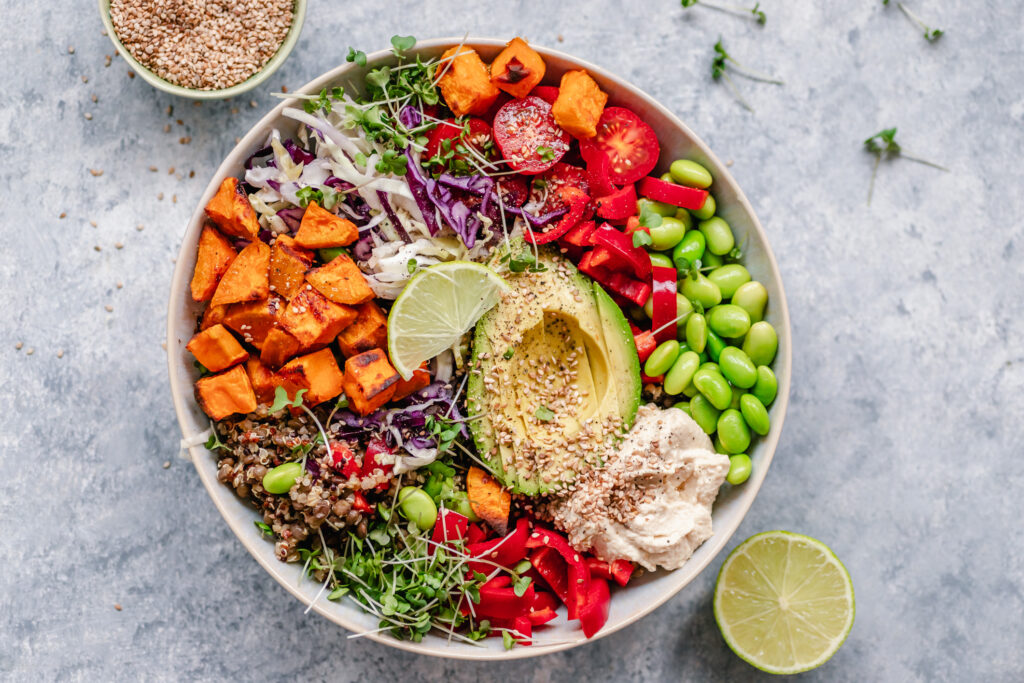Are you ready to adapt a flexitarian diet?
By: Elizabeth Katzman MS, RDN, CNSC, CDN
March is National Nutrition Month! This year’s theme is Fuel for the Future to highlight eating with sustainability in mind. While there are many ways for you to eat more sustainably, from buying local to reducing food waste, one of the more popular methods is to adopt a plant-based diet.

The term “plant-based diet’ can be confusing. Many people think vegetarian and vegan diets when they hear plant-based, but plant-based can also mean having plants as the star of your plate with meat on the side. Still, transitioning from a meat-dominate diet to vegetarian or vegan can be daunting and not everyone is ready to give up meat. If that sounds like you, the flexitarian diet may work for you (or your patient).
Flexitarian stands for flexible vegetarian but isn’t technically a vegetarian diet despite its name. Created in 2009 by dietitian Dawn Jackson Blatner, the flexitarian diet encourages a plant-forward approach, but allows for meat when the craving hits without guilt or feeling like you failed or “cheated.”
The flexitarian diet is based on the idea that you can still reap some of the health and environmental benefits associated with vegetarianism or veganism without feeling overwhelmed. For some people, this flexibility eliminates the fear of going “cold turkey” with meat and can improve diet compliance. For many of our patients who have limited finances, limited mobility, and limited interest in vegetarian and vegan diets, it could be a good starting point for them or a long-term compromise.
While there are no definitive rules in being flexitarian, here are some general points for following a flexitarian diet.
- No food is forbidden or considered “bad.”
- Focus on eating mostly fruits, vegetables, legumes, lentils, nuts, seeds and whole grains.
- Eat meat less often. While there is no set amount, the goal would be to eat more meals with plant-based proteins versus meat-based proteins in a week. What that number is, however, is up to you.
- Rely a little more on whole foods and less on processed foods.
- Limit added sugar and sweets.
- Be flexible and be forgiving. It may take time to find the right balance for you.